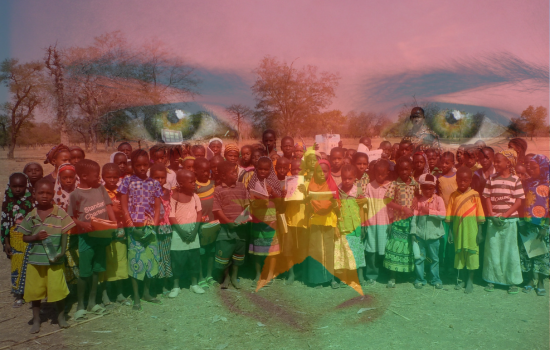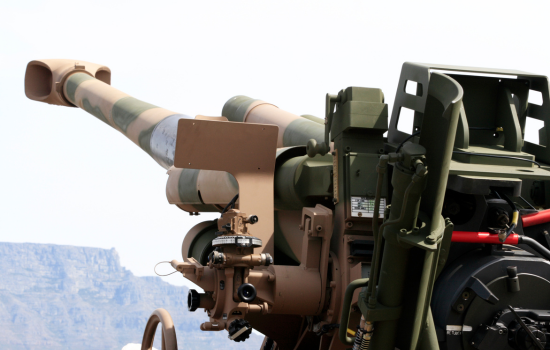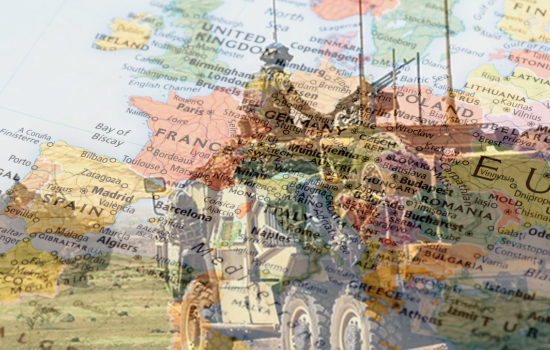New Realities in the War on Terror
- June 22, 2004 – Zarqawi’s group beheaded a South Korean hostage.
- June 18, 2004 – Paul Johnson was killed, nearly a week after being kidnapped in Saudi Arabia. Gory photos of his severed head appeared on an Islamic website shortly after.
- June 8, 2004 – Robert Jacobs is shot to death by terrorists outside his Riyadh home. A terrorist videotape shows his killers kneeling over his body and appearing to cut off his head, although the actual decapitation was not seen (and has not yet been confirmed).
- May 12, 2004 – Nicholas Berg was kidnapped in Iraq and decapitated. His last moments were videotaped by the terrorists and released to Islamic websites and media.
- February 2002 – Wall Street Journal reporter Daniel Pear was beheaded by Islamic terrorists in Pakistan.
- June 2001 – American Guillermo Sobero was kidnapped and beheaded by the Abu Sayyaf group, an Islamic terror outfit linked to al Qaeda, in the Philippines. Notes calling the killing an act of “jihad” were left with Sobero’s body.
Kidnappings followed by beheadings – videotaped in all their bloody detail and immediately released to Islamic websites and news media – are apparently becoming a tactic of choice for al-Qaida and affiliated Islamic terror groups. They’re easy to carry out and, according to Richard Murphy, former U.S. ambassador to Saudi Arabia, are designed to “cause maximum shock in the Western public”. He calls the beheadings “a political, psychological ploy to show the enemy is merciless, vengeful and will stop at nothing”.
Rachel Bronson, director of Middle East studies at the Council on Foreign Relations says that “Beheadings are done to try to show that no Westerners are safe. It has a chilling effect on Westerners in Saudi Arabia.” Jerrold Post, director of George Washington University’s Political Psychology Department and author of “Leaders and their Followers in a Dangerous World”, says that “Zarqawi and other Muslim extremists around the world have, in recent years, selected non-Muslims to behead to send explicit religious messages to the Western world”.
The psychological motive was further highlighted in the latest incidents by the fact that the terrorists posed their victims in orange prison uniforms of the kind worn by Islamic detainees in Abu Ghraib and Guantanamo Bay.
The brutal reality of this type of physical and psychological terror, relentlessly driven by radical Islamic religious fanaticism and unrestrained by the conventional “rules” of international conflicts, requires new ways of thinking and new responses to cope with and defeat the phenomenon.
Against this background, a new book titled “Imperial Hubris” was recently released by a career CIA officer, writing under the name “Anonymous”. In it, the author focuses on his belief that that the war against Islamic terror, as perpetrated by al-Qaida, is not going well, and he is critical of the policies defining the priorities of that war.
In an interview with Andrea Mitchell, Foreign Affairs correspondent for NBC News, “Anonymous” expresses opinions that are controversial, such as his strong conviction that the campaign in Iraq was misguided, and even played into the hands of the fanatics perpetrating “jihad” against the United States.
While some of the author’s ideas may reflect his own political leanings and personal bias, they are sufficiently relevant and far-reaching to warrant serious discussion. His supporting arguments go beyond the campaign in Iraq, and relate to his conviction that al-Qaida poses a genuine existential threat to the United States, which must be vigorously engaged and decisively defeated.
The following summary of the interview with Mitchell, as reported on the MSNBC website, contains an overview of his ideas on the war against Islamic terror. [Full text of Andrea Mitchell’s interview with “Anonymous” at https://www.msnbc.msn.com/id/5279743/]
The Nature of the Threat
The author states that “we remain in a state of denial about the size of the organization we face, the multiple allies it has, and more importantly…the genius of bin Laden that’s behind the movement and the power of religion that motivates the movement. I think we are, for various reasons, loath to talk about the role of religion in this war. And it’s not to criticize one religion or another, but bin Laden is motivated and his followers and his associates are motivated by what they believe their religion requires them to do. And until we accept that fact and stop identifying them as gangsters or terrorists or criminals, we’re very much behind the curve.”
Defining the Enemy
According to the author, the focus on trying to deal with bin Laden himself as “just a terrorist” is the wrong approach to dealing with the larger problem of global terror. While the elimination of bin Laden would undoubtedly be a positive development for many reasons, “Anonymous” believes that “the real enemy is the radical form of Islam that bin Laden and his followers espouse” and is convinced that the level of violence in the war against al-Qaida needs to be escalated.
When asked by Mitchell whether the beliefs of bin Laden and his followers are not in fact “a distortion of Islam”, “Anonymous” crosses the red line of political correctness so prevalent in the free world and in much of its mass media, by stating that bin Laden is “probably the only heroic figure, the only leadership figure that exists in the Islamic world today” and, furthermore, that “there seems to be very little opposition to him within the Muslim world, and that’s why I think that our assumption that he distorts Islam is just that, it’s ‘analysis by assertion’. I’m not sure it’s quite accurate.”
Mitchell further questions “Anonymous” on his call for “tough actions” and escalation of the level of violence required in the war against terror: “You say in your book that killing in large numbers is not enough to defeat our Muslim foes. This killing must be a Sherman-like razing of infrastructure. You talk about civilian deaths. You talk about landmines. Is that really what we have come to in this war on terror?” The reply is blunt: “We’ve arrived at the point”, says the author, “where the only option is military. And quite frankly, in Iraq and in Afghanistan we’ve applied that military force with a certain daintiness that has not served our interests well.”
He goes on to express his conviction that al-Qaida will attack the United States homeland again, and harder than before. To assume that the lack of such an attack since 9-11 is a reflection of al-Qaida’s inability to carry one out is, in his opinion, just another example of “analysis by assertion”. He points out that “One huge failing of the American counterterrorist community throughout its existence has been the assumption that if someone hasn’t attacked us in a while, they can’t attack us. And I think that’s where we are, the kind of mindset that if it hasn’t happened, it’s because they can’t. I tend to think bin Laden will attack us when he wants to. He’s an individual who has been very unmoved by external events. If there’s a man who marches to his own drummer in terms of timing, it’s certainly bin Laden and al-Qaida.”
“Anonymous” attributes the failure to locate or capture bin Laden, or to seriously impair al-Qaida’s viability as a threat, to the unwillingness of senior intelligence community bureaucrats to take the “full, unvarnished truth” to the president. “I think”, he says, “they are loath to describe the dire problem posed by bin Laden for a number of reasons. One of them is basically political correctness. It’s not career-enhancing to try to engage in a debate about religion and the role it plays in international affairs. And so we address bin Laden from the perspective of law enforcement, picking them off one at a time, arresting them, killing them. And I think that’s the result of no one frankly discussing the size of the problem or the motivation behind the problem.”
The Solution
According to “Anonymous”, the first step in understanding the problem is “to try to divorce yourself from the emotions generated by bin Laden’s activities and rhetoric, and the activities and rhetoric of the people who agree with him, or support him. The decapitation of people, the flying into the World Trade Center, and the destruction of the Destroyer Cole raise emotions that they must raise among Americans. But when we respond to those in a law enforcement manner, in a manner that describes these men as, again, criminals or terrorists, we fail to understand the size of the organization that supports al-Qaida and the size of the organization that al-Qaida has bred for over 20 years.”
“The other problem”, he continues, “is an analytic problem. If you’re looking at a terrorist group, you don’t put together an order of battle as you would for an army or an insurgency. And so you talk about taking down three-quarters of al-Qaida’s leadership. Well, at the end of the day, what we’ve done is take down three-quarters of the al-Qaida leadership we knew of on 11 September 2001. And if you take that as a measurable success, it is. But you don’t know, first, how big the organization was you started to work against it; and second, the assumption is that it’s a static, sterile organization that doesn’t grow. And the one thing we can be certain of is that the attack on Afghanistan by the United States and the continued occupation of Afghanistan has caused the number of volunteers going to al-Qaida in Afghanistan, and the amount of money going to al-Qaida in Afghanistan, to have increased, I would say, probably dramatically”.
In his opinion, the bottom line is a significant and aggressive escalation of violence on the part of the anti-terrorist forces, targeted against Islamic radicals wherever they may be. To those politically correct individuals who would say that such a call for war could be interpreted as directed against all Muslims, and would only “make things worse”, his reply is understated but filled with powerful implications. He says “I wonder how much worse the situation can be, in the first instance. We continue to believe that somehow public diplomacy or words will affect the anger and hatred of Muslims. And I’m not advocating war as my choice. What I’m advocating is, in order to protect the United States, it is our only option.” He goes on to say, “It’s the only option. It’s not a good option; it’s the only option. And I’m not saying we attack people who aren’t attacking us. But in areas where we realize our enemies are, perhaps we have to be more aggressive.”
When Mitchell asks “Even if it means civilian casualties?”, “Anonymous” again disregards political correctness. He replies simply “That’s the way war is. I’ve never really understood the idea that any American government, any American elected official is responsible for protecting civilians who are not Americans. My experience working against bin Laden was there were multiple occasions when we did not take advantage of an opportunity to solve the problem because we were afraid of killing a civilian, we were afraid of hitting a mosque with shrapnel, we were afraid of disrupting sales of arms overseas. Very seldom in my career have I ever heard anyone ask what happens if we don’t do this.”
At the conclusion of the interview with Mitchell, “Anonymous” summarized his bottom line in chilling terms. “My own opinion is we should err on the side of protecting Americans first. And if we make a mistake in that kind of action, I think the American people will accept that. This is a matter of survival. This is not a nuisance anymore.”






